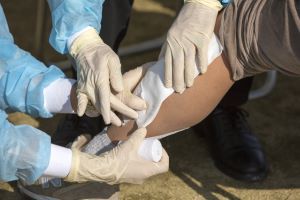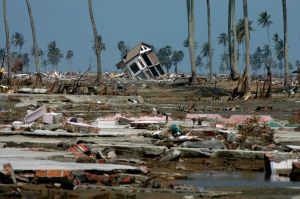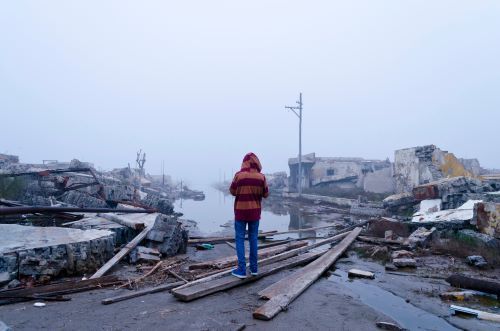Government institutions are finding increasing success when they partner with private disaster relief and emergency response organizations like Wellhart. These agencies supply the vital resources needed to appropriately respond to disasters and help communities recover from the devastation they cause, and offer many other benefits to supplement governmental aid.
Blog
-

Benefits of Hiring Private Disaster Relief Organizations
-

Assessing the Safety Culture at Your Healthcare Organization
Building a solid safety culture at your healthcare orgtanization is not only vital for the work environment and satisfaction of your medical staff, but also for putting patient safety first. However, before you can begin to implement changes and structures to build such a safety culture, you must first assess your institution’s culture as it currently stands.
-

Mindfulness Meditation Practices For Locums This Winter
The Wintertime blues is no joke. Shorter days and less sunlight can cause low mood and motivation for the average person, and can slow down the back to back traveling schedule of your average locum as well. Don’t let seasonal changes affect your locum work this cold season. Instead utilize these top 3 proven mindfulness meditation practices for medical providers on the go this Winter.
-

Boosting Your CRNA Salary with the New APRN Compact
Physicians and registered nurses both have their own multistate compacts that allow them to travel and work locum jobs across state jobs seamlessly. So where’s the multistate license for CRNAs? The answer is, it’s coming soon! The new APRN compact is currently in the process of being implemented, and when the time comes, you may find your earning potential increasing as doors to more locum job opportunities open up!
-

New Report Highlights Alarming Healthcare Staffing Shortages
The Minnesota Hospital Association (MHA) recently released their 2022 annual workforce report, and the results are grim. While the report only collects data from MHA member facilities in Minnesota, its findings are also relfective of the critical and ongoing shortage of medical providers across the nation. Read on to learn more about the healthcare staffing shortage in Minnesota, and why job vacancy rates are growing at such an alarming rate.
-

Utilizing Past Events in Disaster and Crisis Preparation
When people experience and survive a natural disaster, they are far more likely to be more prepared for future risks; but how can health systems prepare for prospective future hazards when climate change is changing the face of natural disaster mitigation, preparedness, and response? Though hazards are becoming more and more unpredictable, we shouldn’t allow ourselves to become helpless.
-

How Climate Change Affects Disaster Risk Reduction
Disaster Risk Reduction serves to prepare vulnerable communities and populations for the mitigation of, response to, and recovery from natural disasters. However, climate change’s adverse adverse effects on the frequency and severity of natural disasters around the globe are starting to become more and more obvious to the naked eye. This International Day for Disaster Risk Reduction, we discuss the ways that climate change is changing the face of natural hazards, and why it’s time to get climate-smart about disaster risk reduction strategies.
-

Emergency Response Cold Weather Safety Tips
Climate change is increasingly bringing about harsher weather conditions and more frequent natural disasters. That is why it is important for your healthcare organization to be prepared for keeping medical staff safe from the cold this winter, even if your region has never experienced harsh winter weather conditions before. Read on to see Wellhart’s top cold weather safety tips to plan ahead for your organization this cold season!
-

Medically Underserved Patients in Your Backyard
Most medical providers choose their profession for the simple fact that helping others lead healthier, happier lives is not only a rewarding career path, but a fulfilling life purpose. Many choose to go above and beyond by helping the medically disadvantaged overseas, but forget how many underserved patients get left behind right at home. Learn more about the underserved patient populations of the U.S., and how you can use locums with Wellhart to make a difference!
-

Best State Locum Licenses for Disaster Relief Assignments
You never know when disaster will strike, but more importantly, as a disaster relief locum tenens provider, you also never know where it will strike. Major natural disasters can happen anywhere at any time, and as such, it can be difficult to be prepared with the right state license. Luckily, Wellhart has the trick to knowing which states are most prone and vulnerable to hurricanes, earthquakes, wildfires, and other natural disasters, so our locum providers can proactively get the right licenses under their belts.










